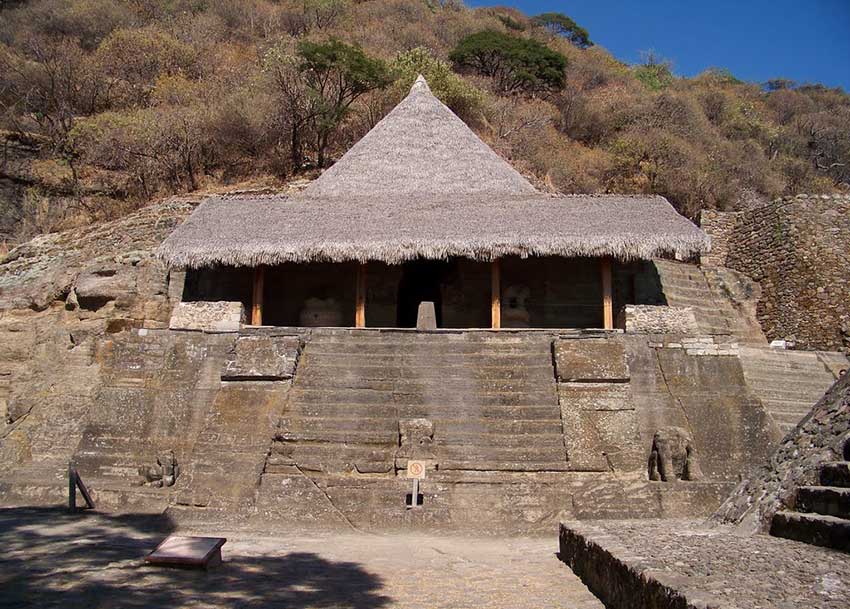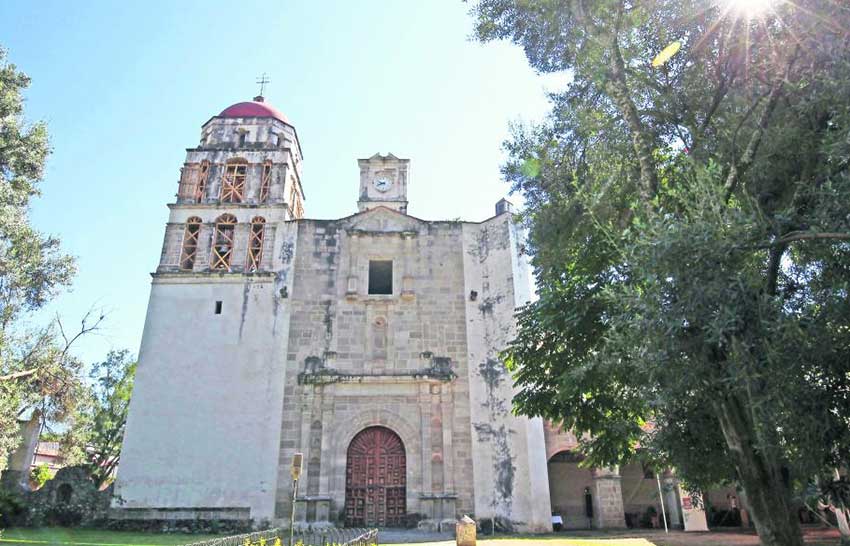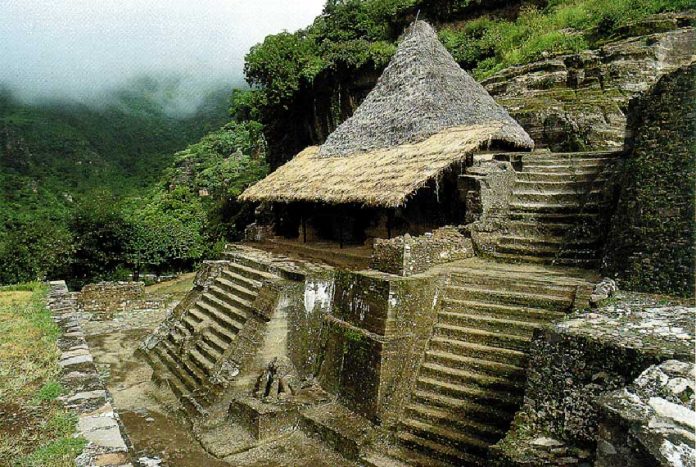I’m on my 385th step to the top of the Malinalco archaeological site and while my lungs are protesting, it’s easy to see why the original settlers, and afterwards the Mexica Indians, decided this was a good place for a lookout.
The entire green valley is spread out before me on all sides and even though the early inhabitants’ thinking was more strategic than scenic, the view is delightful.
Located in the México state town of Malinalco, this archaeological site is peculiar for its rock-cut architecture (only found here and in places like Petra, Jordan, and Ellora, India) and I attest to its uniqueness. The Cuauhcalli temple or House of the Eagles was built right into the side of the hill, with intricate forms cut around its entrance and giant eagle-head stone seats inside.
While you aren’t allowed to enter the inner sanctum, there is a replica in town at the Dr. Luis Mario Schneider University Museum if you want to get a better feel for the place. The entire complex was used as a training ground for the Mexica, where they would battle to the death with captured prisoners and be initiated as eagle warriors, their septum pierced through to announce their new status.
Four hundred and twenty-seven steps lead up to the site, a fact proudly pointed out to me twice by the single employee at the visitors’ center below — a hundred or so just to the entrance. During a weekday, with tourist crowds dispersed, you weave and wander along alleyways in town to get there, feeling quite like Alice in Wonderland, wondering what might be coming next.

Malinalco is not a place shouted about in international guidebooks, but most Mexico City residents know it as a rural respite just a few hundred miles from the city limits. Unlike towns similarly close – Valle de Bravo, Cuernavaca, Avandaro – Malinalco has not lost its small-town charm. Despite a handful of good restaurants and a few antique shops and galleries, the town is mainly residential, sunbaked under the heat of the central Mexico sunshine.
For travelers who need lots of in-town activities you will only last a few days, but for folks who like to sit on the plaza, have an ice cream and people watch, you might find yourself looking at property by the end of the day. That said, if you plan right you can make Malinalco a mellow base from which to explore lots of nearby nature.
The Obraje waterfalls (Cascadas del Obraje) are about an hour from town in the Parque Ecoturístico Cienega de San Antonio which is way off the map. If you go on your own a good GPS and some direction-asking Spanish are a must, but there are also local tour groups that take groups, including Maliemociones which will set you up with rappel gear for a misty descent.
There are also nearby biking and hiking trails and once you get tired of all the physical exertion, the Ruta de Mezcal (Mezcal Route), a project hoping to encourage mezcal making (and drinking) in this area.
For this we suggest you go with a guide because the route is not well developed enough yet to be easy on your own. You’re also not too far from the monarch butterfly reserve in México and Michoacán states.
If you want to stick to the sidewalk, Malinalco has some lovely churches, including its most impressive — an Augustine monastery built in 1540.

At the time of this writing there are several churches closed due to 2017 earthquake damage, but enough are open that you can get your fill: see the Capilla de la Soledad, Capilla de San Pedro, Capilla de Santa Mónica, and Capilla de Santa María.
Every day at the south end of the main plaza a handful of street food stands and market vendors set up, but Wednesday is the big market day with a double row of stands along the plaza’s east side.
The area is famous for nieves (fruit ice cream with a water base), cecina (a type of dried, salted beef used for tacos and other dishes), and trout and other freshwater fish from the dozens of rivers and streams leading into the valley.
Los Placeres restaurant and the Puente de Mali are two of the better restaurants downtown and there is also the French-inspired chef’s menu-only restaurant at Hotel Casa Limon. For a more relaxed ambiance the La Casa de Valentina has a thousand and one items and an adorable patio, and the Tzolkin Café, a coffee shop right on the square, has good vegetarian food, coffee from Veracruz and local craft beer.
There several nice hotels in town, but it’s really more an Airbnb kind of place. Lots of lovely homes and villas will make you feel like a rich weekender. Outside of town I’m fond of the Canto de Aves hotel, a secluded, romantic property with seven or so adobe and wood cabins, each deliciously furnished. For a clean, inexpensive option try Hotel Santa Mónica just steps from the main plaza.
The museum previously mentioned, Museo Universitario Dr. Luis Mario Schneider, was the collection of scholar and longtime Malinalco resident Luis Schneider and has a historical rundown of the area represented with old photographs, indigenous artifacts and samples of flora and fauna. It’s easy to visit in under an hour.
I also personally recommend the Day of the Dead in Malinalco. The local cemetery overflows with families on October 31 and November 1, decorating the graves of their loved ones, and most of Malinalco’s churches have public altars.
On the 31st you can catch the Recorrido al Mictlán, a roving Day of the Dead festival where young people from each of the town’s neighborhoods make giant paper maché puppets and dance through the streets.
You’ll find that during the week many shops and restaurants are closed, but the town also has fewer tourists so it’s give and take. This is a quiet retreat kind of place and a gateway to local nature more than a hip scene, a nice place to relax for a few days or pass through on your way to or from Mexico City.
Lydia Carey is a freelance writer based in Mexico City.
